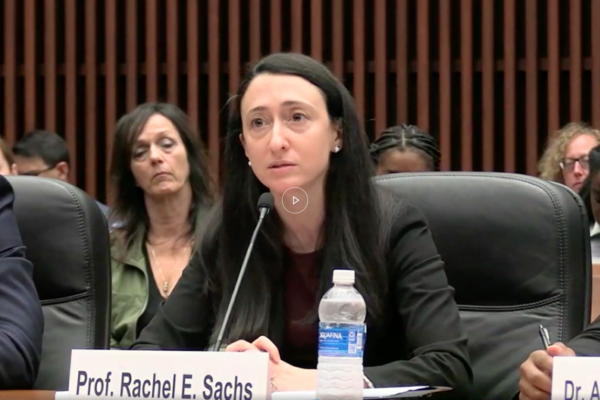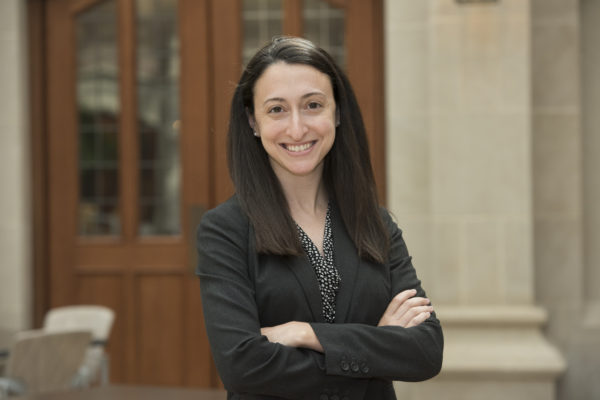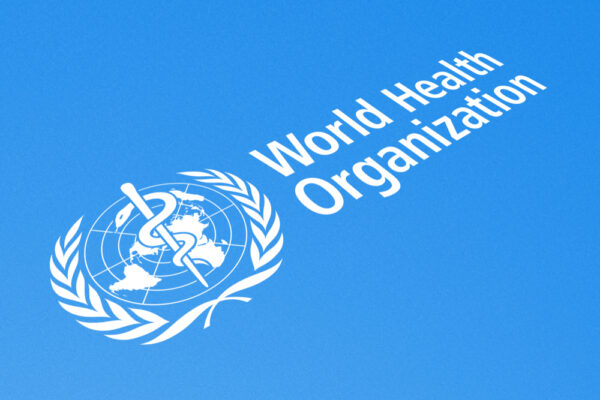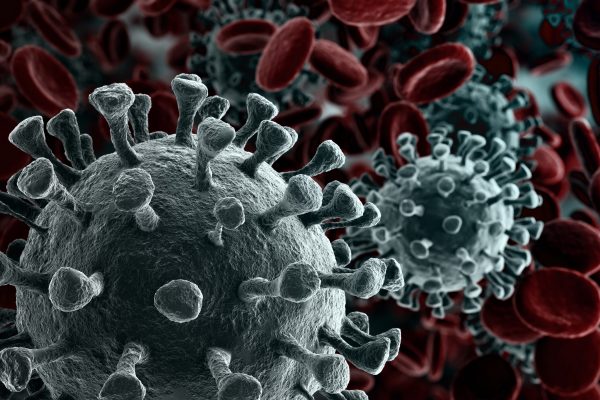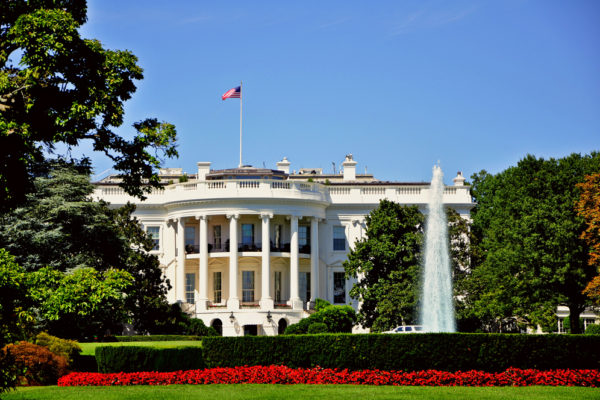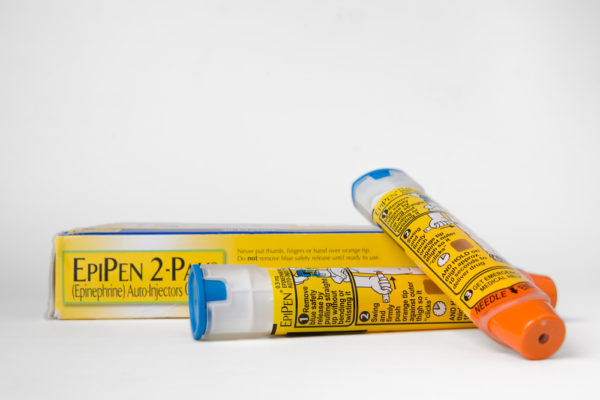Sachs is a renowned expert on health policy and drug law. She is a scholar of innovation policy whose work explores the interaction of intellectual property law, food and drug regulation and health law. Her work explores problems of innovation and access to new health care technologies. Sachs’ scholarship has or will have appeared in journals that include the Michigan Law Review, the Minnesota Law Review, the Harvard Law Review, the New England Journal of Medicine, and the Journal of the American Medical Association.

Rachel Sachs
Treiman Professor of Law
Contact Information
- Phone: 935-8557
- Email: rsachs@wustl.edu
- Website: Website
Media Contact
In the media
Trump signs executive order setting 30-day deadline for drugmakers to lower prescription drug costs
Rachel Sachs, professor of law
Trump orders new efforts to lower drug prices
Rachel Sachs, professor of law
Trump administration halts Biden proposal to let Medicare, Medicaid cover anti-obesity drugs
Rachel Sachs, professor of law
The Biden Administration Made A Big Decision On Ozempic, But RFK Jr. Could Tank It
Rachel Sachs, professor of law
Weight loss drugs could soon be covered by Medicare and Medicaid
Rachel Sachs, professor of law
Kennedy Doesn’t Like Ozempic. Here’s What He Can Do About It.
Rachel Sachs, professor of law
White House says prescription drug deals will produce billions in savings for taxpayers, seniors
Rachel Sachs, professor of law
Here’s What the Court’s Chevron Ruling Could Mean in Everyday Terms
Rachel Sachs, professor of law
Maryland created a Prescription Drug Affordability Board to rein in prices
Rachel Sachs, Treiman Professor of Law
How a Drug Company Made $114 Billion by Gaming the U.S. Patent System
Rachel Sachs, Treiman Professor of Law
Lawmakers are readying fresh attacks on pharmacy middlemen
Rachel Sachs, Treiman Professor of Law
FDA pushes to remove pregnancy drug, company pushes back
Rachel Sachs, Treiman Professor of Law
The debate over a new ALS drug harkens back to the Aduhelm controversy
Rachel Sachs, Treiman Professor of Law
EXPLAINER: Lower prescription prices to take time in new law
Rachel Sachs, Treiman Professor of Law
Fact-Checking Health Claims About the Inflation Reduction Act
Rachel Sachs, Treiman Professor of Law
Medicare chief vows to implement drug pricing reforms on time
Rachel Sachs, Treiman Professor of Law
Drug industry on verge of rare defeat
Rachel Sachs, the Treiman Professor of Law
Drug industry poised for rare political loss on prices
Rachel Sachs, the Treiman Professor of Law
Finally, Medicare Takes A Step Towards Cost-Control – And Alzheimer’s Advocates Push Back
Rachel Sachs, Treiman Professor of Law
Medicare proposes limiting coverage of controversial Alzheimer’s drug
Rachel Sachs, Treiman Professor of Law
Alzheimer’s groups vow to fight proposed Medicare restrictions on controversial drug
Rachel Sachs, Treiman Professor of Law
Democrats Choosing Less Risky Path on Drug Prices
Rachel Sachs, Treiman Professor of Law
New Alzheimer’s drug clouds outlook for Medicare premiums next year
Rachel Sachs, associate professor of law
How everyone on Medicare could end up paying for the pricey new Alzheimer’s drug
Rachel Sachs, associate professor of law
FDA head urges probe of agency’s dealings with Biogen, maker of controversial new Alzheimer’s drug
Rachel Sachs, associate professor of law
New Drug Could Cost the Government as Much as It Spends on NASA
Rachel Sachs, associate professor of law
How a single new Alzheimer’s drug could blow up the federal budget
Rachel Sachs, associate professor of law
The Drug That Could Break American Health Care
Rachel Sachs, associate professor of law
The Drug That Could Break American Health Care
Aduhelm, the first new Alzheimer’s drug in 18 years, may not work. But states and Medicare might pay billions of dollars for it anyway, argues the School of Law’s Rachel Sachs, an expert on drug pricing.
Biogen’s Costly, Unproven Drug Feared as Health Budget Buster
Rachel Sachs, associate professor of law
Democrats Dig In on Measure to Compel Drug-Pricing Negotiations
Rachel Sachs, associate professor of law
Trump utterly failed to cut drug prices. Here’s how Biden could do better
Rachel Sachs, associate professor of law
Trump’s Operation Warp Speed promised a flood of covid vaccines. Instead, states are expecting a trickle.
Rachel Sachs, associate professor of law
Trump unveils controversial drug price rules in a last-ditch attempt to fulfill campaign promise
Rachel Sachs, associate professor of law
Trump pushes last-minute drug pricing rules likely to face big legal challenges
Rachel Sachs, associate professor of law
A Final Try by Trump to Cut Drug Prices May Stumble in Court
Rachel Sachs, associate professor of law
Gilead’s Covid-19 Drug is Mediocre. It Will Be a Blockbuster Anyway.
Rachel Sachs, associate professor of law
FDA advisory committee debates safety and efficacy standards for a coronavirus vaccine
Rachel Sachs, associate professor of law
Trump Promises Drug Discount Cards as an Expensive Pre-election Gift
Rachel Sachs, associate professor of law
Trump looks for ways to win over voters on health care after failing to deliver on promises
Rachel Sachs, associate professor of law
FDA poised to announce tougher standards for a covid-19 vaccine that make it unlikely one will be cleared by Election Day
Rachel Sachs, associate professor of law
Donald Trump Is Losing On An Issue Voters Care A Lot About. Here’s How He’s Trying to Change That
Rachel Sachs, associate professor of law
Trump Issues Expansive Order Aimed at Lowering Drug Prices
Rachel Sachs, associate professor of law
Trump Keeps Promoting a Drug Order That No One Has Seen
Rachel Sachs, associate professor of law
Insurers’ offers to cover COVID-19 treatment are expiring
Rachel Sachs, associate professor of law
Trump signs executive orders aimed at lowering drug prices in largely symbolic move
Rachel Sachs, associate professor of law
Withdrawn drug study adds more politics, distrust to coronavirus science
Rachel Sachs, associate professor of law
Importing Prescription Drugs from Canada — Legal and Practical Problems with the Trump Administration’s Proposal
Rachel Sachs, associate professor of law
Trump Administration Unveils a Major Shift in Medicaid
Rachel Sachs, associate professor of law
The House Passed Its Prescription Drug Plan — Here’s What’s In It
Rachel Sachs, associate professor of law
The Huge Amount of Waste in the U.S. Health System
Rachel Sachs, associate professor of law
How An ‘International Price Index’ Might Help Reduce Drug Prices
Rachel Sachs, associate professor of law
Trump Administration Weighs Allowing Drug Imports for Cheaper Prescriptions
Rachel Sachs, associate professor of law
Trump Administration Plans To Allow Imports Of Some Prescription Drugs From Canada
Rachel Sachs, associate professor of law
Trump admin opens door to allow drug importation from Canada
Rachel Sachs, associate professor of law
Senate Finance Committee to consider drug costs
Rachel Sachs, associate professor of law
There Is No Single, Best Policy for Drug Prices
Rachel Sachs, associate professor of law
Trump wants credit for lowering health costs. Banning drug rebates was an obstacle.
Rachel Sachs, associate professor of law
Florida Wants To Import Medicine From Canada. But How Would That Work?
Rachel Sachs, associate professor of law
Trump Religious Shield for Health Workers Puts Employers in Bind
Rachel Sachs, associate professor of law
Will Displaying Drug List Prices In Ads Help Lower Costs?
Rachel Sachs, associate professor of law
Why Does Medicine Cost So Much? Here’s How Drug Prices Are Set
Rachel Sachs, associate professor of law
Why Donald Trump needs Obamacare
Rachel Sachs, associate professor of law
One GOP senator is urging the drug industry to make good on lowering prices
Rachel Sachs, associate professor of law
Can Netflix Show Americans How to Cut the Cost of Drugs?
Rachel Sachs, associate professor of law
Pharma executives in the hot seat over drug prices
Rachel Sachs, associate professor of law
How Trump’s Latest Plan to Cut Drug Prices Will Affect You
Rachel Sachs, associate professor of law
Trump proposal would upend drug industry by overhauling rebates in Medicare
Rachel Sachs, associate professor of law
Association health plans expanded under Trump look promising so far
Rachel Sachs, associate professor of law
U.S. insulin costs per patient nearly doubled from 2012 to 2016: study
Rachel Sachs, associate professor of law
Democrats examine drug prices, a first step in Congress’ path to cut prescription costs
Rachel Sachs, associate professor of law
All of Congress’s ideas for bringing down prescription drug prices, explained
Rachel Sachs, associate professor of law
House Democrats defend Obamacare as courts weigh in
Rachel Sachs, associate professor of law
Drug makers resist pressure from Washington on prices
Rachel Sachs, associate professor of law
Elizabeth Warren’s ambitious new bill to lower generic drug prices, explained
Rachel Sachs, associate professor of law
Something Happened to U.S. Drug Costs in the 1990s
Rachel Sachs, associate professor of law
Trump leans into midterms with a pitch to un-rig Medicare drug prices
Rachel Sachs, associate professor of law
Should TV Drug Ads Be Forced To Include A Price? Trump’s Team Says Yes
Rachel Sachs, associate professor of law
Drugmakers may have to disclose prices of medicine in television ads
Rachel Sachs, associate professor of law
Trump vowed drug companies would lower prices. That hasn’t happened yet.
Rachel Sachs, associate professor of law
A Setback For Massachusetts In States’ Drive To Contain Medicaid Drug Spending
Rachel Sachs, associate professor of law
Will Trump’s Plans Bring Down Drug Prices?
Rachel Sachs, associate professor of law
The Trump administration finally has one good idea to lower drug prices
Rachel Sachs, associate professor of law
Trump administration to explore drug imports to counter price hikes
Rachel Sachs, associate professor of law
The News on Drug Prices? Nothing Good
Rachel Sachs, associate professor of law
Donald Trump’s phony war on high prescription drug prices, explained
Rachel Sachs, associate professor of law
Pfizer Increases Drug Prices
Rachel Sachs, associate professor of law
Another mystery in Trump’s missing promise to bring down drug prices
Rachel Sachs, associate professor of law
Looking at HHS’ strategy after another court loss
Rachel Sachs, associate professor of law
Trump Wants Medicaid To Push For Lower Drug Prices – But Will Patients Be Hurt?
Rachel Sachs, associate professor of law
Vermont legislators pass a drug importation law. So what?
Rachel Sachs, associate professor of law
Trump and health secretary outline ‘blueprint’ to lower drug prices
Rachel Sachs, associate professor of law
The 6 most interesting parts of Trump’s mostly disappointing drug price plan
Rachel Sachs, associate professor of law
Trump is set to unveil his plan to lower drug prices. Here are four things to watch for.
Rachel Sachs, associate professor of law
Trump to deliver major address on drug prices, but advocates predict small steps
Rachel Sachs, associate professor of law
Federal Appeals Court Finds State’s Drug Price-Gouging Law Unconstitutional
Rachel Sachs, associate professor of law
Utah’s quixotic Medicaid expansion plan, explained
Rachel Sachs, associate professor of law
Trump teams rolls out new drug pricing ideas
Rachel Sachs, associate professor of law
Donald Trump promised to fight Big Pharma. He never did.
Rachel Sachs, associate professor of law
This old drug was free. Now it’s $109,500 a year.
Rachel Sachs, associate professor of law
Jeff Sessions wants to put more cops on the opioid beat. Experts say that won’t solve the problem.
Rachel Sachs, associate professor of law
Allergan’s unusual legal tactic attracts political scrutiny
Rachel Sachs, associate professor of law
Allergan ruling casts doubt on tribal patent strategy
Rachel Sachs, associate professor of law
Absent federal action, states take the lead on curbing drug costs
Rachel Sachs, associate professor of law
Massachusetts has a really big idea to bring down drug costs
Rachel Sachs, associate professor of law
U.S. tribal patent deal could have big impact on generic drug market
Rachel Sachs, associate professor of law
Obamacare survives its latest threat: Bare counties
Rachel Sachs, associate professor of law
Whichever Way ‘Repeal And Replace’ Blows, Pharma Is Due For Windfall
Rachel Sachs, associate professor of law
Is competition the solution to high drug prices?
Rachel Sachs, associate professor of law
Death by 1,000 cuts: How Republicans can still alter your health coverage
Rachel Sachs, associate professor of law
Republicans Now Control Obamacare. Will Your Coverage Change?
Rachel Sachs, associate professor of law
Congress and FDA nominee heap love on ‘adaptive trials’
Rachel Sachs, associate professor of law
Here’s Why Trump Will Struggle To Control ‘Murderous’ Drug Prices
Rachel Sachs, associate professor of law
Could Amgen’s Patent Victory Be Bad For Medicine?
Rachel Sachs, associate professor of law
The FDA Should Approve Drugs Based on Evidence, Not Emotions
Rachel Sachs, associate professor of law
Funding for Cures Bill Remains Sticking Point for Health Groups
Rachel Sachs, associate professor of law
Drug prices: Where do we go after the election?
Many Americans are concerned about the high price of prescription drugs. Rachel Sachs, associate professor in the School of Law, writes for The Conversation that there are both practical and political challenges with policies that elected leaders could enact to improve affordability.
How to Bring Down Drug Prices Post-Election
Rachel Sachs, associate professor of law
Is Zika deal finally here?
Rachel Sachs, associate professor of law
EpiPen Maker Lobbies to Shift High Costs to Others
Rachel Sachs, associate professor of law
Mylan’s Lower-Cost EpiPen May Not Hurt Drugmaker’s Sales Much
Rachel Sachs, associate professor of law
Stories
Sachs testifies on drug prices before Senate Judiciary Committee
Rachel Sachs, a professor of law and an expert on pharmaceutical law, testified Oct. 29 before the U.S. Senate Committee on the Judiciary on reducing prescription drug costs.
Sachs named fellow at USC-Brookings health policy initiative
Rachel Sachs, the Treiman Professor of Law at Washington University, has been selected as a nonresident fellow at the USC-Brookings Schaeffer Initiative for Health Policy.
Sachs testifies before House committee
Rachel Sachs, an expert on drug pricing at the School of Law, testified May 4 before the House Committee on Energy & Commerce about lowering prescription drug costs.
WHO withdrawal may not be legal
President Donald Trump announced July 7 that the United States has officially begun to withdraw from the World Health Organization. Trump may or may not have the authority to do so, says an expert on health law at Washington University in St. Louis.
WashU Expert: Coronavirus failures suggest problem with innovation policy
All of the issues surrounding COVID-19 trace back to a single legal stream, says an expert on drug policy and health law at Washington University in St. Louis. The lack of diagnostic testing. The lagging development and distribution of personal protective equipment. Shortages of ventilators. Finding prescription medication to treat the disease. They all are related by law and policy.
Prescription drug affordability
A final judgment invalidating the entire Affordable Care Act as unconstitutional would not only harm those in the individual market or Medicaid expansion—but would also jeopardize the ability of even more Americans to afford their prescription drugs.
WashU Expert: New Trump drug policy proposal ambitious, but is it feasible?
The Trump Administration released a proposed rule Jan. 31 that could alter the way many drugs are priced and paid for among Medicare and Medicaid plans. The proposed regulation would eliminate the regulatory safe harbor for rebates as they exist today, said Rachel Sachs, an expert on drug policy and pricing at Washington University in St. Louis.
WashU Expert: Trump’s new NAFTA won’t lower domestic drug prices
President Donald Trump has touted his new United States-Mexico-Canada Agreement as a way to boost the American economy. It may not, however, have any impact on one of his other campaign promises: reducing prescription costs for U.S. consumers, says a drug pricing expert at Washington University in St. Louis.
WashU Expert: Trump’s drug pricing plan breaks little new ground
President Donald Trump, in a long-awaited speech May 11, took aim at reducing drug prices in America. But there was little in the speech or the administration’s plan that takes direct aim at industry, says an expert on drug policy at Washington University in St. Louis.
WashU Expert: Budget provides insight into Trump Administration drug policy
During his first year in office, President Donald Trump spoke about high drug prices but took little action to address the problem. His budget proposal, released this week, does lay out a strategy — though what is most notable is not what’s included, but rather what is missing. Rachel Sachs, an expert on drug pricing and policy at Washington University in St. Louis, weighs in.
Drug policy: The year in review, and the year ahead
Last year was an unquestionably busy time for health care news of all kinds. Media and policy coverage rightly focused on the many attempts to repeal the Affordable Care Act, but it was also an eventful year in news for those of us who focus on prescription drug policy. In this post, I review five of the biggest drug policy developments of the past year, and look ahead to five issues I expect to make headlines in 2018.
WashU Expert: Incentivizing new uses for off-patent drugs
Generic medications could be an effective way to improve health outcomes while lowering costs, but the existing drug patent system is poorly designed to motivate such discoveries, says an expert on health law at Washington University in St. Louis.
Moving toward a pay-for-value model of prescription drug pricing
Prescription drug prices have skyrocketed and fixing the complex pricing models is complicated. That’s no excuse for not trying, says the School of Law’s Rachel Sachs.
Be very, very concerned about what Allergan just did
Yesterday, it was announced that Allergan had transferred the ownership of the patents on its billion-dollar drug Restasis, used for the treatment of chronic dry eye, to the Saint Regis Mohawk Tribe. The Tribe then exclusively licensed the drug back to Allergan, in exchange for tens of millions of dollars in both licensing and royalty fees. Although it may not sound like it, this transfer is potentially huge news in the drug pricing world. It is also extremely complex, and its full implications have yet to be determined.
21st Century Cures Act passage highlights need for improved comment period
The 21st Century Cures Act and key changes made during its drafting remain controversial and show the need for a more informed comment period for future health care legislation, says an expert on health law at Washington University in St. Louis.
WashU Expert: Trump has no clear plan for reducing drug prices
Despite announcing in his first press conference that he would deal with a pharmaceutical industry “getting away with murder,” President-elect Donald Trump doesn’t seem to have a clear path for how he will reduce drug prices, said Rachel Sachs, associate professor of law and expert on drug regulation and health law.
WashU Expert: Cures Act’s controversy continues
The 21st Century Cures Act, the vast bill aimed at bolstering medical research and revamping the way drugs are approved, is a step in the right direction but is far from perfect, says an expert on the health care industry at the School of Law at Washington University in St. Louis.
WashU Expert: EpiPen controversy highlights need for price controls
Recent scandals involving high-priced generic drugs should prompt us to consider price controls for pharmaceutical companies, says an expert on the health care industry at the School of Law at Washington University.
